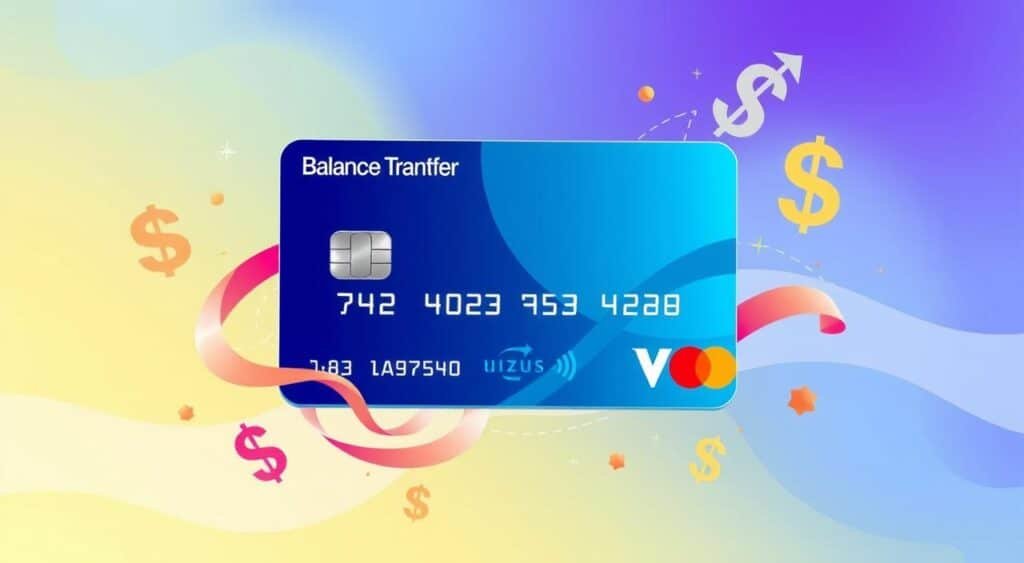Debt consolidation is a smart way to handle many high-interest debts. This includes credit card balances, personal loans, or student loans. By combining these debts into one loan, you could save on interest and make payments easier. It’s a great choice for those finding it hard to manage their debts and want a simpler way to pay back.
Key Takeaways
- Debt consolidation combines multiple debts into a single new loan, often at a lower interest rate.
- Consolidation can help simplify your finances by replacing multiple monthly payments with one.
- Qualifying for a debt consolidation loan typically requires a good credit score and stable income.
- Consolidation can potentially save you money on interest and help you pay off debt faster.
- It’s important to carefully compare loan terms and fees to ensure consolidation is the best option for your financial situation.
Understanding Debt Consolidation
Debt consolidation is a way to make paying back your debts easier and might even save you money. It combines several debts, like credit card balances and personal loans, into one loan. This can help you in different ways, based on your financial situation.
What is Debt Consolidation?
Debt consolidation means getting a new loan to pay off several debts. The main aim is to get a lower interest rate than what you’re now paying. This can make your monthly payments smaller and help you pay off debt faster.
You’ll have just one loan with a fixed rate and a set payment schedule. This makes managing your money easier.
There are two main ways to consolidate debt: using a balance transfer credit card with a 0% introductory APR or getting a fixed-rate debt consolidation loan. The best choice depends on your credit score and debt-to-income ratio. Consolidation can be good if you can get a lower interest rate and stick to the new loan’s payments.
“Debt consolidation can be a powerful tool to simplify your finances and potentially save you money, but it’s important to carefully evaluate your options and ensure it’s the right choice for your specific situation.”
Types of Debt Consolidation Options

Consolidating your debts can be a smart financial move. It’s key to know the different options out there. Two main ways to consolidate debts are balance transfer credit cards and debt consolidation loans.
Balance Transfer Credit Cards
A balance transfer credit card lets you move your credit card balances to a new card. This card has a 0% interest rate for 15 to 21 months. This can cut down your interest costs and help you pay off debt quicker. But, you’ll need a good or excellent credit score to get the best deals.
Debt Consolidation Loans
Debt consolidation loans give you a single sum to pay off your debts. Then, you pay back the loan over a set time, usually 1 to 7 years, at a fixed rate. These loans can cover any unsecured debt, not just credit cards. People with any credit score can get these loans, but those with higher scores get better rates.
Home equity loans and 401(k) loans are other options. But, they risk your home or retirement savings. So, they’re not as safe as the main debt consolidation ways.
When thinking about debt consolidation, weigh the pros and cons. Consider your debt-to-income ratio and current debt interest rates. These can help you decide if it’s right for you.
When Is Consolidation a Smart Move?

Debt consolidation can be a smart move in certain situations. Make sure your monthly debt payments don’t go over 50% of your income. Also, your credit score should be strong enough for a 0% balance transfer card or a debt consolidation loan with a lower interest rate than what you’re paying now.
To choose debt consolidation wisely, your cash flow must cover the new loan’s regular payments. If you pick a balance transfer card, pay off the balance before the special offer ends. With a debt consolidation loan, aim to pay it off within 1 to 7 years.
It’s a good idea if you have several credit cards with high interest rates and can swap them for one loan at a lower interest rate. This way, you can pay off the debt faster. It also makes your monthly payments easier to manage and could save you money on interest.
“Debt consolidation can be a powerful tool to simplify your finances and potentially save money, but it’s important to carefully consider your specific situation before making the decision.”
consolidation loan: Pros and Cons

When thinking about a debt consolidation loan, it’s key to look at both the good and the bad sides. A debt consolidation loan can give you a lower interest rate than your current debts. This could save you money and help you pay off debt quicker. It also makes managing your money easier by turning several payments into one.
But, debt consolidation loans have their downsides too. You might face upfront fees or closing costs, adding to the total cost. If your credit score is low, you could get a higher interest rate. Missing payments can hurt your credit score and history. Debt consolidation doesn’t fix the financial habits that got you into debt. To really benefit, you need a solid budget and an emergency fund to prevent getting back into debt.
- Lower Interest Rate: A debt consolidation loan may offer a lower interest rate than your current debts, saving you money and speeding up debt repayment.
- Simplified Finances: Consolidation simplifies your finances by combining several monthly payments into one, making it easier to manage your money.
- Improved Credit: Making timely payments on a debt consolidation loan can improve your credit score over time.
- Upfront Fees: Debt consolidation loans may come with closing costs or other fees, increasing the total cost.
- Higher Interest Rate: If your credit score is low, you might get a higher interest rate on the consolidated loan.
- Damaged Credit: Missing payments on the consolidated loan can severely damage your credit history and credit utilization.
- Underlying Habits: Debt consolidation doesn’t fix the financial habits that caused the debt. You must address those habits to truly benefit.
“Debt consolidation can be a valuable tool, but it’s essential to carefully consider the pros and cons before making the decision.”
Deciding on a debt consolidation loan requires a deep look at your finances. Consider your current interest rates, credit score, and your ability to make consistent payments. Knowing the good and bad points helps you make a choice that fits your financial goals line of credit .
Also Read: What Are The Steps To Apply For A Home Loan?
Conclusion
Debt consolidation can help simplify your finances and might save you money. It’s not right for everyone, though. By merging your debts into one loan, you can make one payment each month. This can help you pay off debt faster if you get a lower interest rate.
But, you need to think it over carefully. Make sure you can handle the new payment. Also, fix the financial habits that got you into debt in the first place. Creating a budget and saving for emergencies is key to not getting back into debt.
Debt consolidation can be a good choice if it fits your financial goals and situation. It requires discipline and a commitment to becoming debt-free. By understanding debt consolidation well and focusing on your overall financial health, you can make a choice that helps you take control of your money. This can lead to a better financial future.
FAQs
Q: What is a consolidation loan?
A: A consolidation loan is a financial product that combines multiple debts into a single loan, allowing you to manage your debt more effectively by having one monthly payment instead of several.
Q: How can I consolidate my debts?
A: You can consolidate your debts by applying for a personal loan to consolidate debt, which provides you with a new loan that pays off your existing debts, typically at a lower interest rate.
Q: What types of debt can I consolidate?
A: You can consolidate various types of debt, including credit card debt, personal loans, and even federal student loans, depending on the loan options available to you.
Q: How do I get a debt consolidation loan?
A: To get a debt consolidation loan, you need to complete a loan application with your chosen lender, who will evaluate your credit score and financial situation to determine your eligibility.
Q: Will consolidating my debt affect my credit score?
A: Consolidating your debt can impact your credit score, especially if you do a hard credit inquiry during the loan application process. However, successfully managing your payments can improve your score over time.
Q: How can I use a debt consolidation calculator?
A: A debt consolidation calculator helps you estimate your potential monthly payment amount and total interest costs for a new loan based on different loan amounts and terms.
Q: What is the typical loan term for a consolidation loan?
A: The loan term for a consolidation loan can vary, but it typically ranges from 2 to 7 years, depending on the lender and the loan amount.
Q: What are the loan rates for consolidation loans?
A: Loan rates for consolidation loans depend on various factors, including your credit score and the loan amount, but they are generally lower than the rates on credit cards.
Q: How can I pay off my debt faster with a consolidation loan?
A: You can pay off your debt faster by choosing a loan with a shorter loan term, which may result in higher monthly payments but lower overall interest costs.
Q: What should I consider before consolidating my debt?
A: Before consolidating your debt, consider the impact on your credit score, the terms of the new loan, your ability to make the monthly payments, and whether the consolidation will help you manage your debt more effectively.





